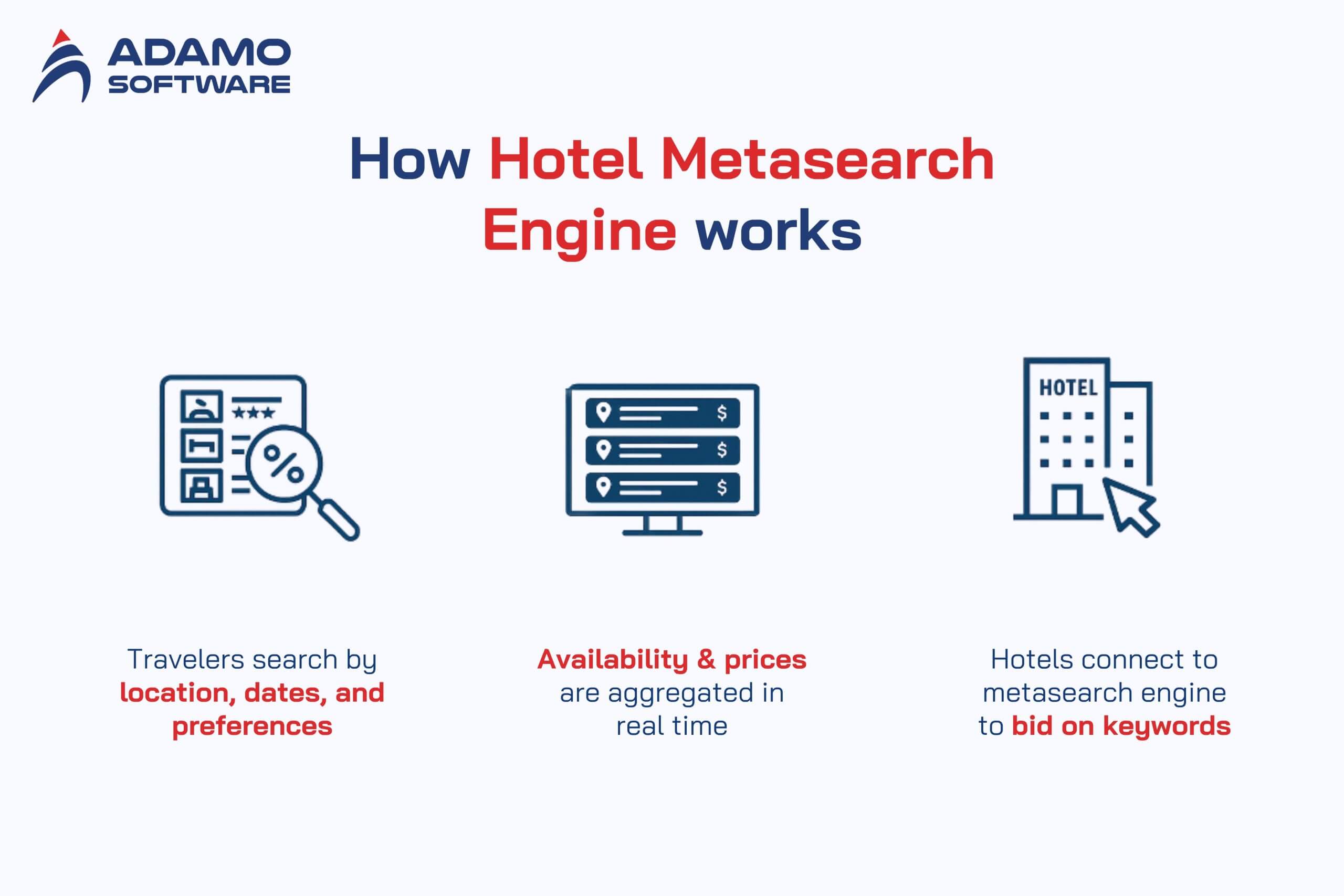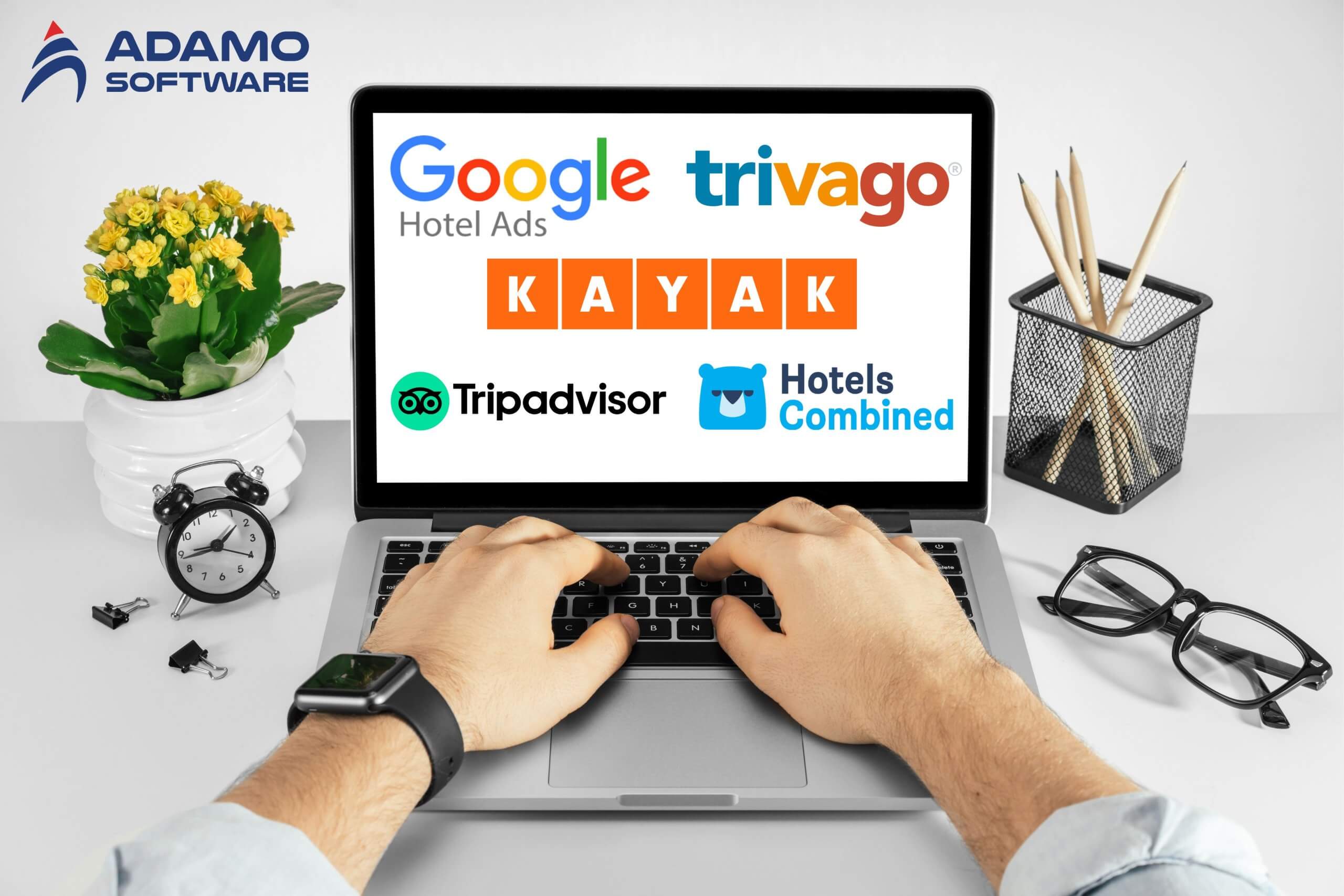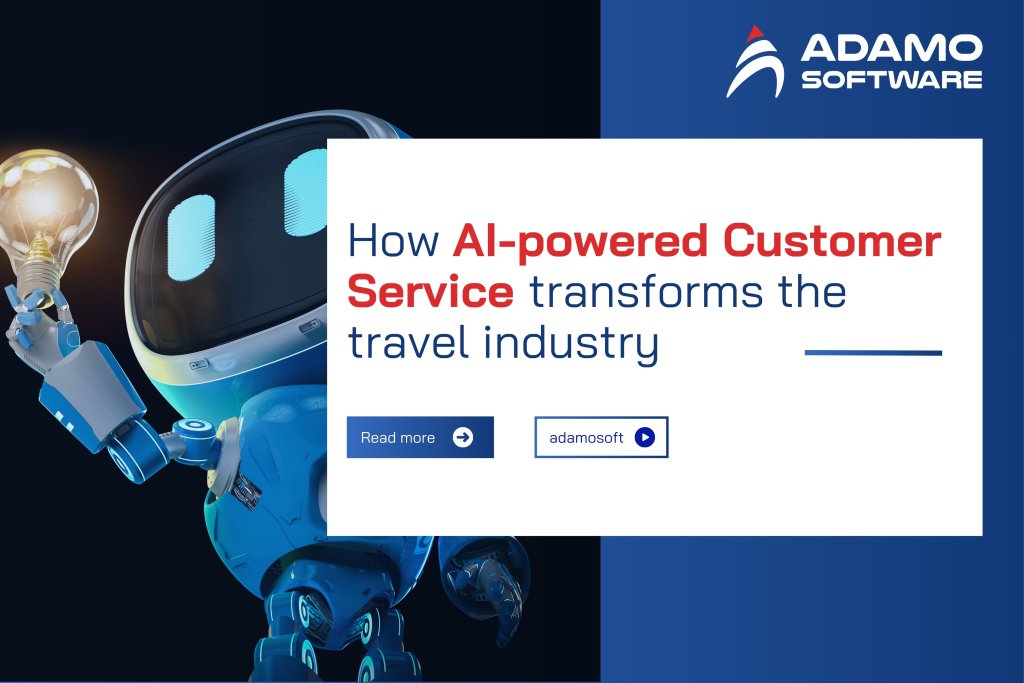Hotel Metasearch Engine: How it works, connects and boosts your booking

Drive more bookings through hotel metasearch engine with custom software that ensures real-time price comparisons and smooth connectivity.
Thanks to hotel metasearch engines, searching for and choosing a place to stay has become much easier. This is made possible through the gathering of information from various sites and putting them in one convenient place. They enable people booking trips to review hotels, prices, and what amenities are offered in real time. This makes the booking process faster and more pleasant. For hoteliers, using hotel metasearch engines helps them be seen by more people. This helps them draw in more guests and often means fewer third-party commission costs.
It takes advanced technology to build and operate a good metasearch engine for hotels. This procedure includes updating data from OTAs, channel managers, and systems, cleaning it up, and sending live, accurate answers to search requests. That’s why custom technology solutions have become important. With the help of expert software, hotels are able to connect to a range of metasearch platforms. As a result, they will be able to show up better in online searches and earn more profits.
In this blog, we’ll review ways custom software can improve how hotels take advantage of metasearch tools to drive more bookings.
I. What is Hotel Metasearch Engine?
A hotel metasearch tool gathers details from various sources like hotel websites, OTAs, and booking platforms, displaying everything in a single, convenient spot. With this search engine, travelers can easily look for accommodation at a given place and immediately check prices, availability, type, and major details in one place. Using metasearch, users only need to check one site to discover great deals for hotels, as all the necessary information is all there.
Travelers find hotel metasearch engines a simple and speedy way to compare hotels, with clear pricing displayed for each result. Their popularity has grown because they provide what modern travelers need quickly and clearly. When making hotel reservations, many now depend on metasearch bookers to help them find the best price.
Knowing how a hotel metasearch engine functions is very important for a hotelier. In addition to helping reserve rooms, these engines let hotels put in bids to be noticed when people look up key phrases like “Paris hotels”. With this system, hotels have a greater chance of being found by potential visitors than those that do not use it. Hoteliers need to keep a close watch on their ad budget because the number of clicks should be in line with the money they make.
Hotel metasearch engines are a necessary way to access the market, next to OTAs and hotel direct sites. With instant booking on metasearch sites, hotels attract more guests and generate more bookings. The value of real-time pricing is clear when you try to accept last-minute bookings that increase your sales.
Integration is done by using channel managers, property management systems (PMS), or central reservation systems (CRS). This is meant to keep rates and availability in line on the metasearch engine website. Hotel marketers rely on Google Hotel Ads, TripAdvisor, and Trivago to enhance their presence online and encourage visitors to book right away.
All things considered, a hotel metasearch engine has many advantages. Hotels can use it to compare booking engines and increase their chances of being seen by the right guests.
You can explore more about Guide to Build Online Booking Engine for Hotels, Airlines and Travel here.
II. How does a metasearch engine for hotels work?

By using a hotel metasearch engine, you can see and compare the rooms and prices offered by many different travel and hotel websites. The cool thing is that all of that information is available in just a single listing. When travelers enter their chosen location, check-in and check-out dates, and sand preferences, real-time information on availability and prices is quickly collected. This information is gathered from various websites and agencies by the metasearch engine.
Because prices from different sites are displayed together, users can save time by only checking in one place. As they simplify finding and comparing hotels and prices, metasearch engines give travelers a better experience when booking.
From the hotelier’s point of view, metasearch engines are valuable marketing and distribution resources. With keywords, hotels can try to appear at the top of search results by bidding. It allows hotels to get more customers without relying so heavily on OTAs and spending less on commissions. It is crucial that a metasearch platform connects with a hotel’s booking engine to keep availability and prices up to date online.
Besides, with metasearch engines, hotels can connect with customers from all around the world. If you have a bigger audience, you may end up with more jobs and earn more money. Overall, hotels nowadays really rely on metasearch engines to speed up travelers’ reservations and increase their hotels’ appearance online.
III. How to connect your hotel to a metasearch engine in hospitality
In order for your hotel to appear on hotel metasearch engines, you should link it to Booking.com, Priceline, and Expedia. Partnering with well-known OTAs in your area will enhance your hotel’s visibility on metasearch sites. Additionally, using many OTAs increases the likelihood that your hotel will be easy to find on a hotel metasearch site.
On top of OTA connections, many hotel metasearch engines will let you create a unique profile for your hotel. You can keep your hotel content current, promote your business directly, and view important stats to improve your results. A number of metasearch engines can be directly linked, so your property management system can instantly share room rates and availability. Thanks to this direct system, information shown to future guests is always up-to-date and correct.
Connecting your hotel to a metasearch platform can be done through a bunch of different methods. The simplest approach is to rely on a booking engine or channel manager provided by an authorized connectivity partner associated with the metasearch platform. Automation allows you to update everything about your stock and its price at the same time on different platforms. Other integrations may use APIs that work well for developers, but these are less widely used because they are not simple. If it’s not possible to directly join metasearch engines, try OTAs that connect to them and allow you to list your property on them.
To get the most out of a hotel metasearch engine, ensure your rates are the same across all booking sites. Additionally, make sure your booking engine is efficient and safe for users to access on any device. Promoting your services on hotel metasearch engines increases global visibility and encourages direct bookings, which saves money and boosts your earnings.
Explore Our Tailor-made Software Development Solutions
We are confident in providing end-to-end software development services from fully-functioned prototype to design, MVP development and deployment.
To maximize visibility, connect your hotel to a hotel metasearch engine by involving several OTAs and utilizing available direct options whenever possible. Make sure your hotel profile stays current and fine-tune your booking process for better performance. By using many strategies, your property becomes more visible, which brings in more bookings from this important distribution channel.
IV. 7 Hotel Metasearch Engine to Fast-Track Your Bookings
A lot of hotel metasearch engines have become essential for hotels that want to improve their online exposure and secure more direct bookings. Booking sites collect data from several travel sites to help you find the best hotel and make a decision you feel good about.
Metasearch engines help hoteliers gain visibility, deal more effectively with competitors, control their income, and depend less on online travel agencies (OTAs). A clear presence on these sites helps hotels draw in more people and convert browsers into guests.
This section highlights seven popular metasearch engines for hotels, each offering unique strategies to boost property bookings effectively.
This list includes industry leaders Google Hotel Ads, Tripadvisor, Trivago, Kayak, Skyscanner, HotelsCombined, and Wego – all instrumental in forming hotel distribution plans for 2025.

Google Hotel Ads
Hotel price comparisons from several online travel agencies and hotels are synthesized by the engine and shown in relevant results on Google pages. Visibility on Google Maps is essential for hotels as it is the first place lots of travelers look to when booking a place to stay.
Being used by so many people gives Google Hotel Ads great power to showcase hotels to a broad audience. It helps hotels become part of the “Sponsored Options” section, where users see their rates and possibilities according to their needs and current area. Hotels find the hotel metasearch engine beneficial for generating income and enhancing their advertising due to easy access to customer bookings and data.
Trivago
In 2005, Trivago was launched in Germany. As of today, it has grown into one of the biggest and most trusted metasearch engines for hotels globally. Part of the Expedia crew, it’s active in over fifty countries worldwide. It compares prices for millions of hotels across 250+ online platforms. Trivago is designed to help people find the best hotel offers by collecting rates from OTAs, chains, and independent hotels.
Trivago is well known for having an easy-to-use site with many filters. This allows users to search for hotels based on factors like price, rating, what’s included, and what people have said about their stays. The company makes money by offering ad space on its website to hotels and travel booking sites. Trivago allows hoteliers to reach a wide international group of travelers searching for lodging, so it plays an important role in increasing bookings.
TripAdvisor
Kicked off twenty-five years ago, TripAdvisor has grown into a widely used platform for travel and hotel insights. It started as a site for travel reviews, yet today, it is a full hotel metasearch tool. It allows users to read what others have said about hotels and compare the prices from different travel websites in just one spot.
While TripAdvisor has many travel products in its search, hotel search is where the platform stands out. HotelSearch brings users to sites with the best deals and offers useful information through feedback and ratings from guests. Additionally, TripAdvisor uses CPC ads to help hotels get noticed more easily by people who search on the site. Building trust with guests and lowering prices becomes easy for hoteliers on this platform.
Kayak
Kaya, a global travel metasearch company active in over 30 countries, was founded in 2005 and became part of Booking Holdings in 2013. It gets its data from hundreds of third-party sites such as OTAs and hotels. This helps the platform make sure users can access more than 2 million properties everywhere. Many say that Kayak is fast at processing information and provides plenty of search features.
What makes this hotel metasearch engine special is that it ensures customers read trusted guest reviews. To make things easy, Kayak provides a simple interface, plus lots of ways to filter and receive alerts when prices drop. It directs guests to the systems used for bookings, allowing them to save both time and energy. Hotels can use Kayak to connect with a worldwide group of travelers who often trust and use the metasearch platform.
HotelsCombined
Based in Sydney and backed by Booking Holdings, HotelsCombined is one of Aussies’ go-to hotel search engines. It gathers room prices and reviews from lots of different OTAs, hotel groups, and independent hotels. It has a presence in close to 200 countries and is able to communicate with users in 40 different languages.
The engine allows users to compare prices and review many accommodation possibilities easily. Through its exclusive program for hoteliers, HotelsCombined helps them manage and update their pages properly. Thanks to its global presence and ability to support many languages, HotelsCombined is useful for hotels wanting to attract travelers from all over the world. As a result, it helps hotels receive more bookings.
Wego
Founded in Singapore in 2005, Wego stands out as a top hotel metasearch engine, focusing primarily on the Asia Pacific, Middle East, and Indian markets. It is available for users from more than 50 nations.
Wego sorts hotels by how many people like them and brings together reviews from users so that tourists can make the best choice. The platform supports local markets by offering Hindi, Tamil, and Bengali, so it’s easier for everyone to use. Wego gives hoteliers the tools to ensure their property details are always up to date and appealing. Because it focuses on certain regions and has a wide inventory, it helps hoteliers attract guests in quickly growing travel destinations.
Skyscanner
The Trip.com Group, which was established in 1999, owns Skyscanner, a travel website that began operations in Edinburgh in 2003. Before, Skyscanner was only for finding the best flight prices. However, it added Skyscanner Hotels in 2014 to include hotel price comparisons too. Being a hotel metasearch engine, Skyscanner directly compares hotel prices from OTAs and hotels.
Connecting with Skyscanner through hotels is possible directly or through global distribution systems (GDS), central reservation systems (CRS), or channel managers. This enables updates to be provided instantly. Hoteliers can use Skyscanner because it is available around the world and offers a variety of ways for users to book. Its quick and correct comparisons draw countless users, which is why it plays a key role in any hotel’s metasearch strategy.
Overall, reaching more customers and getting more direct bookings is much easier for hotels using hotel metasearch engines. With help from numerous travel websites, these platforms let users instantly compare different price offers. Metasearch engines give hoteliers a practical way to get noticed, control their revenue stream, and decrease their use of pricey OTAs.
Each of the seven top hotel metasearch engines has something special to offer and reaches customers worldwide. With their efforts combined, hotels can reach a wide range of people who travel within the region or from other countries.
Effective use of these platforms will turn interested travelers into real guests, make pricing more effective, and help hotels become more recognized. Any hotel hoping to see more bookings and do well in the digital world needs to connect with the leading hotel metasearch engines.
V. Get bookings from the hotel metasearch engine using tailored software

Setting up a hotel metasearch engine demands a strong technical setup that collects data from the web or APIs and ensures all data is the same. It needs to spit out instant results and plug effortlessly into a bunch of OTAs and channel managers. This difficult area is one Adamo Software masters, thanks to our deep knowledge in developing travel and hospitality software.
Using a hotel metasearch engine, people can look at prices from different sources, compare them, and book without hassle. A strong technology base and an experienced software development team are necessary to design and operate such platforms well. This expertise covers design, API integration, data processing, and improving user experience.
Adamo Software’s skilled staff is dedicated to building booking systems and metasearch tools, connecting with big OTA platforms. We totally get the unique tech needs that travel and hospitality software development demand.
If you’re seeking to better reach and generate more revenue by using hotel metasearch engines, connect with Adamo Software today. We’ll help you discuss custom software options that fit your business. Contact us now!





